As children, we have certain obligations towards our parents. But what if our parents hang these obligations over our heads for their personal gain? Being parents doesn’t mean that they own our lives. Unloving toxic parents abuse their children emotionally, mentally and sometimes physically.
They are delusional about their relationship with their child and use their children to satisfy their needs and self-esteem. There are often long-term effects of toxic parents as children from such dysfunctional families end up with trauma and carry wounds that haunt their adulthood too.
Children of toxic parents tend to carry the toxicity into their relationships in adulthood. You might not even know how toxic parents affect you but growing up without unconditional love can have severe effects on a child’s psyche that they would carry the ill effects all their life.
What Is Toxic Parenting?
Table of Contents
Rather than love, care and understanding, toxic parents instill the feelings of fear, guilt and obligation in their children. In the name of love, they abuse their children and make them feel like they are obligated to accept their parent’s behaviour. Toxic parenting causes severe mental abuse and the side effect of toxic parents could also be child depression.
Usually toxic parenting arises from the wounds that the parents have faced in their childhood. The parent feels that their child is obligated to suffer from the same kind of trauma that they faced in their childhood.
Many a times, the frustration of an unsuccessful marriage is taken out on children. Parents somehow begin to blame their children for their unsuccessful marriage and their child acts as a trigger for the pain caused in the marriage to them.
Such trauma leads to toxic parenting and the child suffers because of dysfunctional parents. Most of the time, these parents suffer from some kind of mental illness or addiction too.
Signs Of Toxic Parents
How do you know you had toxic parents? By understanding the signs of toxic parents you will know how your toxic parents affected you in your childhood.
The signs of toxic parents are…
- They are always critical. They can be rude, hurtful and uncompromising in their criticism that can result in low self-esteem of a child.
- They demand attention all the time. They get really upset if a child has friends and other interests.
- They have a twisted idea of disciplining. They make you believe that you deserve all the beating, punishment and control that you are getting from them, because you deserve it.
- They do not think twice about taunting you, calling you names and making sarcastic comments about the things that matter to you.
- There are types of toxic parents who make children follow the goals they set for them. They are never allowed to voice their opinion or chose a life they want for themselves.
- Toxic parents make a child so fearful and anxious that they carry the toxicity to their adulthood. They feel stressed when a parent calls and says, “I have to tell you something…”
- Growing up without unconditional love could be hard but having parents who constantly compete with you is harder. Did they hijack your school projects and later say they did everything? You joined an art class they did too. Then they compared your work with theirs.
- Toxic parents are so overbearing and controlling that it’s hard to let go of them even if you want to and desperately try to do so in adulthood.
Related Reading: 15 Signs You Had Toxic Parents And You Never Knew It
8 Relationship Problems You Can Face If You Had Toxic Parents
Things toxic parents say and do in the name of love often cause relationship problems faced by children of toxic parents. They end up with lower self-esteem, emotional trauma, childhood depression and guilt. They tend to feel helpless and begin to blame themselves for their parent’s actions.
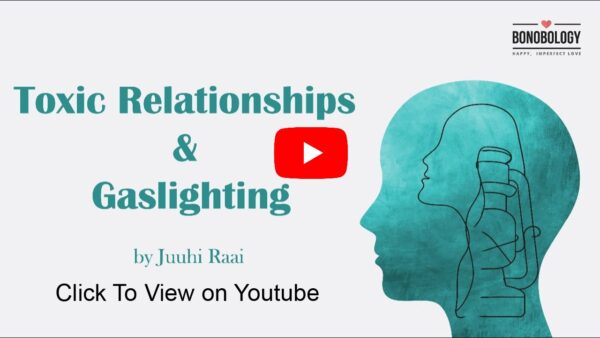
When these children become parents, they tend to repeat the same patterns of abuse that their parents used on them and their children become victims of the same trauma that they faced in their childhood.
They begin to make the same mistakes their parents made with them and once again a child is deprived of the love and care that it deserves. Here are 8 effects of toxic parents and relationship problems you can face if you had toxic parents.
1. Repeating the same patterns
Children of toxic parents often seek for the approval of their damaged parents and want to make amends for all that was caused in their childhood. This is because a part of them blames themselves for the trauma that was caused by their parents to them.
In an attempt to do so, they seek for romantic partners whose characteristics resemble their dysfunctional parents- and end up being with narcissists. They fall in love with people who bear similar qualities like excessive anger, drinking problems, emotionally damaged, etc. in an attempt to fix things that they couldn’t fix with their parents.
They attempt to fix their partners instead, in an attempt to make amends with what happened in their childhood. But in doing so, they again become victims of the same abuse that their parents caused them. They now become victims of their partner’s abuse and the pattern of abuse is repeated.
2. Difficulty in understanding their self worth
The trauma caused in their childhood often leaves them with low self-esteem and a constant feeling of self-doubt. They doubt their capabilities and consider others superior to them.
This is because throughout their childhood, their parents kept telling them how worthless they were and how incapable of being loved they were. They turn out to be quiet and keep to themselves because they don’t know their self-worth.
3. Difficulty in engaging with romantic partners
Victims of toxic parents don’t know how being loved feels like, what it is like growing up without unconditional love. For them love has always come with a sense of guilt and obligation because of which they don’t know what it is to be loved unconditionally. When they find someone who is willing to love them sincerely, it is hard for them to believe that such a relationship can exist in their life.

It becomes difficult for them to understand that they too are capable of being loved. This affects their romantic relationship with their partner as it takes them time to heal the emotional wounds and make space for someone who actually cares for them.
Related reading: I Didn’t Realise I Was in an Emotionally Abusive Relationship
4. Problem in identifying boundaries
Children with toxic parents have a high tolerance level. The relationship that they set as a benchmark for boundaries is their relationship with their parents. However, being victims of toxic parents makes them unable to understand to what extent they should tolerate someone’s behaviour.
When an outsider is misbehaving with them or blaming them without their fault, they are unable to identify it which makes them unable to identify their boundaries with other people.
They cannot set emotional boundaries in intimate relationships and have no sense of space. They believe breathing down one’s neck is a way of showing love.
5. Anger issues
Childhood is the most significant stage in a person’s life as it shapes the person into who he/she becomes. Trauma that is caused during childhood often leads to a lot of frustration and pent up anger inside.
Since they can’t take out their frustration on their parents due to respect, this frustration builds up and usually comes out unexpectedly in front of the wrong people. These children suffer from severe anger issues in future.
They are always festering inside and flare up frequently, that has the worst effect on a romantic partner. They keep wondering why their partner loses it without logic or reason.
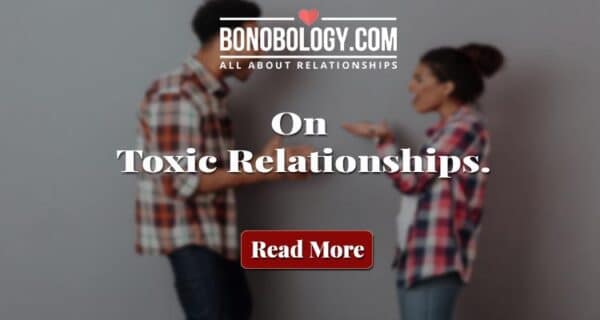
6. Problem trusting their partner
On engaging with a romantic partner, victims of childhood abuse usually find it difficult to trust their partner. They are so used to a conditional love relationship that being in a relationship that involves unconditional love, becomes untrusting for them.
They begin to feel that their partner has some hidden agenda with them as no person can be so nice to them. It also becomes difficult to trust their partner with the secrets of the childhood trauma caused to them.
This in turn affects their relationship with their partner. They do not reveal a part of themselves and their partner do not understand the reason for certain behaviours.
Related Reading: Emotional abuse- 9 signs and 5 coping tips
7. Problem in understanding relationships
Toxic parenting usually includes a reward and punishment relationship between the parent and child which is also known as a conditional relationship.
All their lives, this is the only kind of relationship that they have experienced which makes it difficult for them in understanding relationships with others.
They seek the same reward and punishment relationship with their romantic partners. In fact, this need draws them towards abusive partners again.
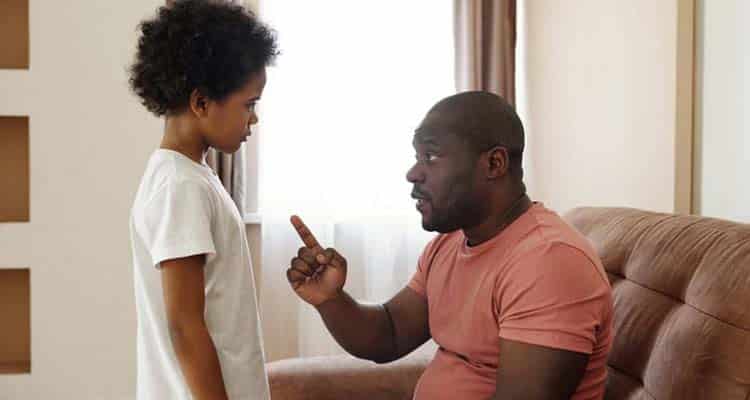
8. Self-criticism
Toxic parents feel a sense of satisfaction when they criticize their children and play the blame game on them. What they don’t realize is the long-term implications of their actions on the mind of the child. They grow up and continuously criticize themselves.
Being the best at their job also seems unrealistic to them. They are critical of their abilities and capabilities even when other people around them appreciate them. It is because the approval that they seek the most is their parent’s.
If you are a victim of toxic parenting or know someone who is a victim, it is important for that person to seek counselling. Both the parents and the children need to be counselled. Counselling helps in healing the emotional trauma and understanding yourself. Counselling is very important in such situations as such victims need a medium to vent out their pain and frustration. Counselling done at the right time can prevent the person from becoming a victim of abuse again and also help them in becoming better parents to their children.
FAQs
Toxic parents are critical, controlling, competitive and they demand constant attention. They punish their children often that instills a sense of fear in them.
You know you have toxic parents if they are always shouting punishing you r or giving you the prolonged silent treatment. They do not allow you to have a voice, you do not know the meaning of unconditional love and you feel fear and anxiety around them.
It is ok to let go of toxic parents. If you do not do that they would keep hoovering like narcissists and interfere in your adult life constantly.
Worst Parenting Mistakes We Always Make And Should Immediately Correct
Your contribution does not constitute a charitable donation. It will allow Bonobology to continue bringing you new and up-to-date information in our pursuit of helping anyone in the world to learn how to do anything.



















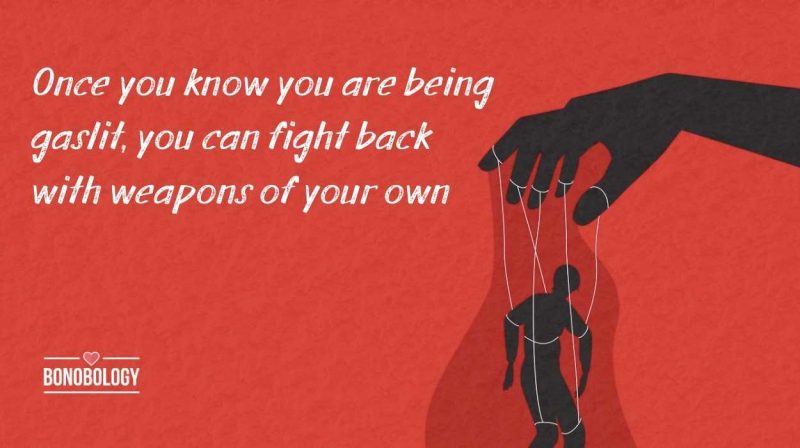
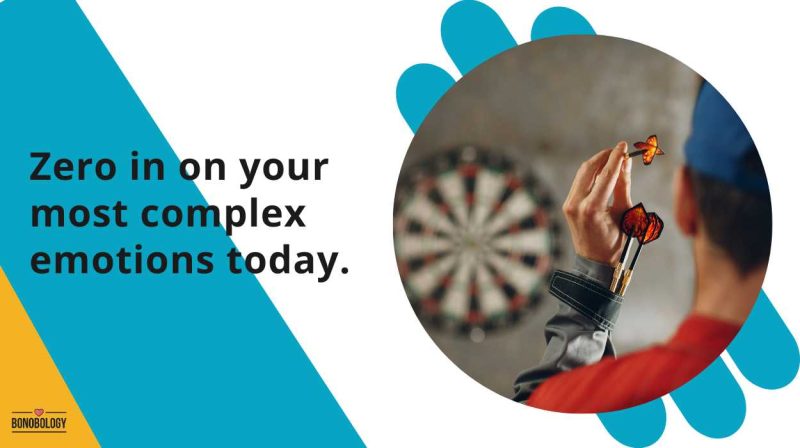


Featured
Am I Moving On Too Quickly After Death Of Spouse—How To Decide
15 Signs You’ll Get Back Together With Your Ex
How To Get Over Trust Issues — A Therapist Shares 9 Tips
Learn How To Forgive Yourself For Hurting Someone You Love
How To Find Peace After Being Cheated On — 9 Tips From A Therapist
How To Forgive A Cheating Husband: 15 Helpful Tips
35 Disturbing Signs Of Gaslighting In A Relationship
What Is Narcissistic Ghosting And How To Respond To It
‘My Husband Starts Fights And Then Blames Me’: Ways To Cope
How To Rebuild Your Life After The Death Of A Spouse: 11 Expert-Backed Tips
My Husband Died And I Want Him Back: Coping With Grief
“Am I Unlovable” – 9 Reasons You Feel This Way
11 Signs Your Girlfriend Was Sexually Abused In The Past And How To Help Her
Coping With Breakups: The Must-Have Breakup Apps For Your Phone
15 Signs You Are Wasting Your Time Trying To Get Your Ex Back
Why Are You Obsessed With Someone You Barely Know — 10 Possible Reasons
33 Phrases To Shut Down Gaslighting And Silence Gaslighters
The Emotion Wheel: What It Is And How To Use It To Build Better Relationships
The Role Of Supportive Relationships In Addiction Recovery
7 Signs You Have A Verbally Abusive Wife And 6 Things You Can Do About It